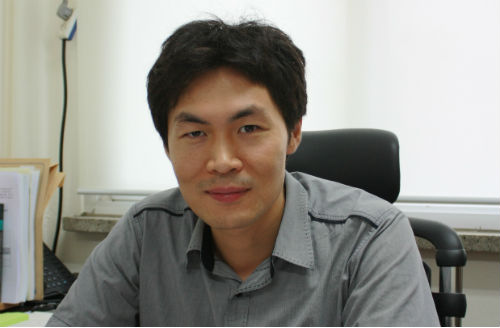One widely held belief is humans are better than other creatures at learning. It is also the majority’s opinion that humans possess learning strategies and reasoning skills that are qualitatively unique among animals. But, I think what is special about humans has more to do with teaching. Our ability and desire to teach manifests itself in diverse ways as early as two-year olds who have just started reading other minds; When given choices, a teacher role is generally preferred to a learner role; The world’s unrivaled selfish species appears to be most cooperative when it spreads and hands down knowledge to posterity; We normally feel offended when someone tries to teach us at the moment unexcused and delighted when we find something unknown to others. Clearly, the value of knowledge is determined socially and hence its emergence is rather situated in having it known to and evaluated by others than in an individual’s knowing. So our species’ incessant, obsessive pursuit of knowledge is not so much a private desire as a societal one.

Education is acts of teaching and learning in unison. Even with no proper consideration of such components as who, what, how, where, and why, I believe good education takes place if teaching leads to learning and learning leads to teaching in turn; that is, if the two are in the relationship of mutual feeding. Education without teaching does not fall in the category by definition. In a community where the intellects are allowed to duck their responsibility, the divorce of authority from responsibility would readily be accelerated by all-time conformists. The TOEIC race imposed by the university as a mandatory credit course exemplifies the rampant authority awarded to the name of ‘teach-er’ with the accompanying responsibility being circumvented. Leaving aside the issue of whether it is legitimate to do this kind of brokerage business with human and financial resources paid for tertiary-level educational service, more surprising is the fact that this convenient way of ‘teaching’ has been proposed and practiced by those who teach, with the alleged aim of raising students’ employment rate. Teachers are now completely free from any accountability in their students’ learning process and outcome, and students are all treated as disoriented job seekers.
At times, teaching fails to give rise to learning. Factors involved are all related more or less to the wh-elements aforementioned, and for obvious reasons more are determined by the teacher. Granted that the subject of learning is the learner, in order for learning to be facilitated, the teacher needs to share the learner’s view so that they can work together for a reciprocal change. Meanwhile, the purpose of learning may have little to do with teaching in its everyday sense ― social acts for the less able’s growth. Knowing, if perceived as one’s possession, plays a crucial role in structuring power relationships among individuals and thereby governs the formation of an individual’s social identity and self-perception. As all matters alike, knowledge by no means makes it the case that the more the better, the faster the better. If one intakes more nutrients than needed, the unused rest, if not excreted luckily, will feed other parasitic bodies inside the host. Knowledge is not unlike this. Unless it is fully digested and used for vitalizing its owner, the left-over will be food for other minds out of the owner’s control. The knowledge that is not enlivened through communication will soon spoil and contaminate the container. It is this reason that good education demands an unfailing circulation of teaching and learning.

By Choe Mun-hong,
Professor,
Department of English Language Education

